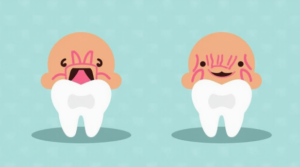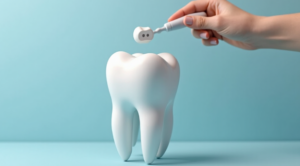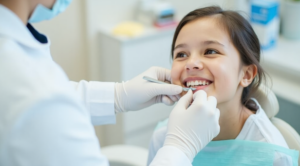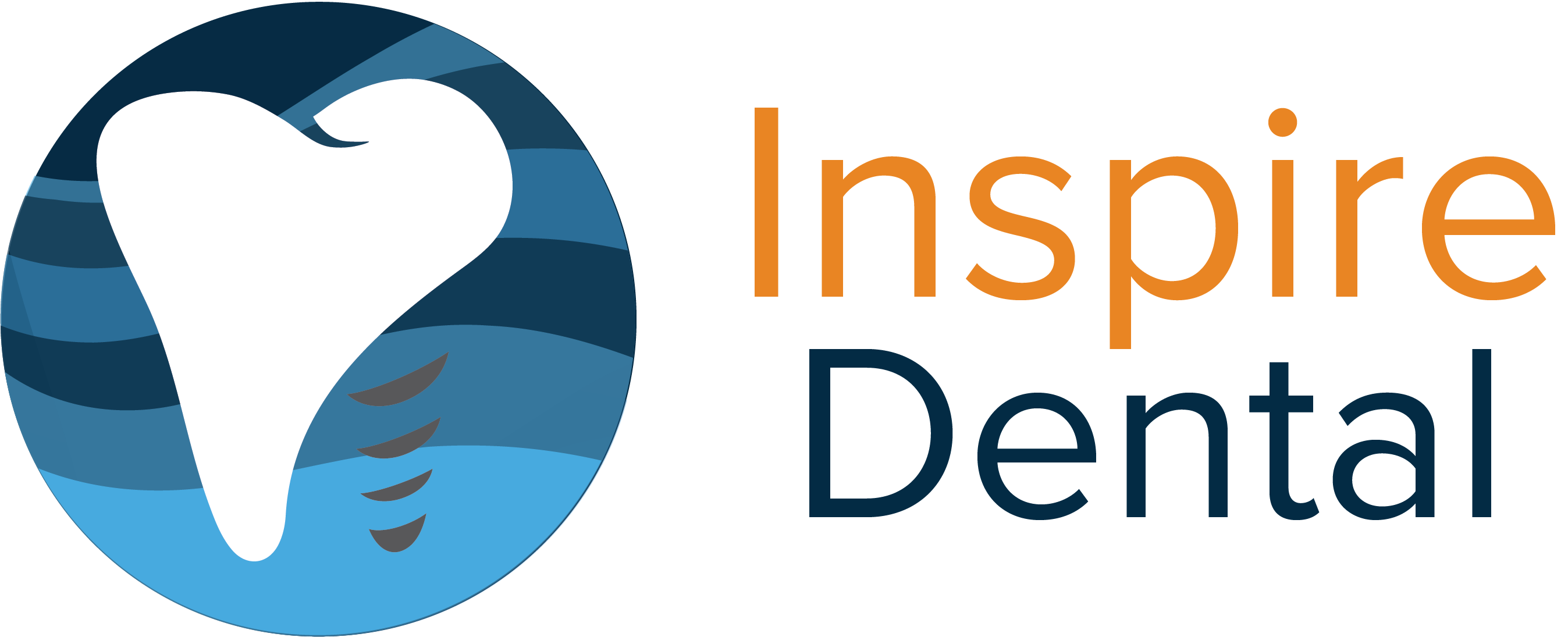Headaches can be a real pain. They can ruin your day and make it hard to focus. Did you know that some headaches can be linked to dental issues? If you have headaches often, visiting a dentist might help you feel better. This Headache Relief Through Dentistry explores how dental care can relieve headaches and improve your overall health.
Key Takeaways
- Dental issues can cause headaches, especially tension headaches and migraines.
- Dental treatments like bite adjustments and orthodontics can help reduce headache pain.
- Good oral hygiene can prevent dental problems and headaches.
- Regular dental check-ups are important for identifying potential issues early.
- Family dentistry services can help address dental-related headache problems.
Understanding How Dental Health Affects Headaches

You may not think about your teeth when you have a headache. However, dental health plays a big role. Many headaches come from tension in your jaw or teeth grinding. If you have problems with your bite or jaw, it can lead to pain. This pain can feel like a headache.
Common Types of Headaches Linked to Dental Issues
| Type of Headache | Description | Common Causes |
|---|---|---|
| Tension Headaches | A tight band-like sensation around the head | Teeth clenching, grinding |
| Migraines | Severe, debilitating pain often accompanied by nausea | Dental issues, stress |
| Sinus Headaches | Pressure and pain behind the eyes or face | Dental infections affecting sinuses |
-
Tension Headaches: These headaches feel like a tight band around your head. They can be caused by clenching your teeth or grinding them at night.
-
Migraines: Some people find that their migraines are related to dental problems. Migraines can be very painful and often come with nausea and light sensitivity.
-
Sinus Headaches: If you have dental infections, they can cause sinus pressure. This pressure can lead to sinus headaches, which feel like pain behind your eyes or face.
Signs That Your Headaches May Be Dental-Related
It’s important to notice the signs. If you have headaches often, think about your mouth. Here are some signs that your headaches could be from dental issues:
- Jaw pain: If your jaw hurts, it might be affecting your head.
- Teeth grinding: Do you wake up with sore teeth? This could be a sign you grind your teeth at night.
- Sensitive teeth: Teeth that hurt with hot or cold can indicate problems.
- Chronic headaches: If you have headaches all the time, it is worth checking with a dentist.
How Dental Treatments Can Help

When you visit a dentist, they can help you find the cause of your headaches. Here are some treatments that might help you feel better:
Bite Adjustments
Sometimes, your bite can be off. This means your teeth do not meet correctly. An adjustment can help align your bite. This can relieve tension and reduce headaches.
Orthodontics
If you have crooked teeth or an uneven bite, braces or other orthodontic devices can help. Straightening your teeth can lead to better jaw alignment. This change can help reduce headaches over time.
Mouthguards
If you grind your teeth, a dentist may suggest a mouthguard. This device protects your teeth while you sleep. It can help reduce the strain on your jaw and lessen headaches.
Fillings and Dental Care
Cavities and other dental issues can cause pain. Treating these problems with fillings or crowns can eliminate the source of pain. This treatment can also reduce headaches.
Importance of Regular Dental Check-Ups

Going to the dentist is not just for cleanings. Regular check-ups can help catch problems before they become serious. A dentist can spot issues that you might not notice. This includes signs of grinding, cavities, or misalignments.
What to Expect During a Check-Up
When you visit the dentist, here is what usually happens:
- Examination: The dentist will check your teeth and gums for any signs of trouble.
- X-rays: If needed, X-rays can help see what is happening beneath the surface.
- Discussion: You can talk about any headaches you have. The dentist will listen and suggest solutions.
Home Care for Headache Relief
In addition to visiting a dentist, you can do things at home to help with headaches. Here are some tips:
Maintain Good Oral Hygiene
Brushing and flossing every day can keep your teeth and gums healthy. This practice can prevent cavities and infections, reducing the risk of headaches.
Stay Hydrated
Drinking enough water is important. Dehydration can lead to headaches. Aim for at least eight glasses a day.
Manage Stress
Stress can cause you to clench your teeth. Find ways to relax, such as deep breathing, yoga, or other calming activities.
Use Heat or Cold
Applying a warm cloth to your neck or a cold pack to your forehead can provide relief from headaches. This simple step can help reduce tension.
Additional Strategies for Headache Management
- Regular Exercise: Physical activity can help reduce stress and tension.
- Sleep Hygiene: Ensure you are getting adequate rest each night.
- Dietary Considerations: Certain foods can trigger headaches; be mindful of your diet.
A Closer Look at Tension Headaches
Tension headaches are one of the most common types of headaches. They can feel tight and may last for hours or days. These headaches can be linked to stress and muscle tension in the neck and jaw.
How Dental Care Can Alleviate Tension Headaches
- Jaw Relaxation: Dentists can provide exercises to help relax your jaw muscles.
- Bite Correction: Aligning your bite can reduce the strain on your jaw and neck.
Exploring Migraines and Their Dental Connection
Migraines are severe headaches that can come with symptoms like nausea and sensitivity to light. Some studies show that dental issues may trigger migraines in some people.
Dental Treatments to Reduce Migraines
- Bite Splints: These can help reduce grinding and clenching, which may lead to fewer migraines.
- Correcting Misalignments: Fixing any bite issues can relieve tension and reduce migraine frequency.
The Role of Sinus Health in Headaches
Sinus headaches can be painful. They occur when the sinus cavities become inflamed. Dental issues, such as infections in the upper teeth, can cause sinus pressure, leading to headaches.
Dental Solutions for Sinus Headaches
- Treating Infections: If you have an infection in your teeth, treating it can relieve sinus pressure.
- Regular Cleanings: Keeping teeth clean can prevent infections that lead to sinus issues.
When to Seek Help
If you often experience headaches, it is important to talk to your doctor or dentist. They can help determine the cause and suggest treatment. You should seek help if:
- Headaches become more frequent.
- Over-the-counter pain relief is not working.
- You have other symptoms like vision changes or dizziness.
Conclusion: Finding Relief Through Dental Care
Headaches can greatly affect your life. They can make work and daily activities hard. Understanding the link between dental health and headaches can help you manage your pain. Visiting the dentist is a great step toward finding relief.
With treatments like bite adjustments, orthodontics, and good hygiene, you can reduce your headaches. Don’t ignore your symptoms. Talk to your dentist about how your oral health may be impacting your headaches. Together, you can find a path to relief and comfort. You can visit our website or contact us.
This approach not only helps with headaches but also improves your overall health. A healthy smile can lead to a happy life. So, keep your dental health in check, and you may find that headaches become a thing of the past.
This guide provides insight into how dental care can help with headaches. It aims to encourage readers to take action and visit their dentist for potential relief from their headache pain. Remember, your dental health is an important part of your overall well-being. Take care of it!
